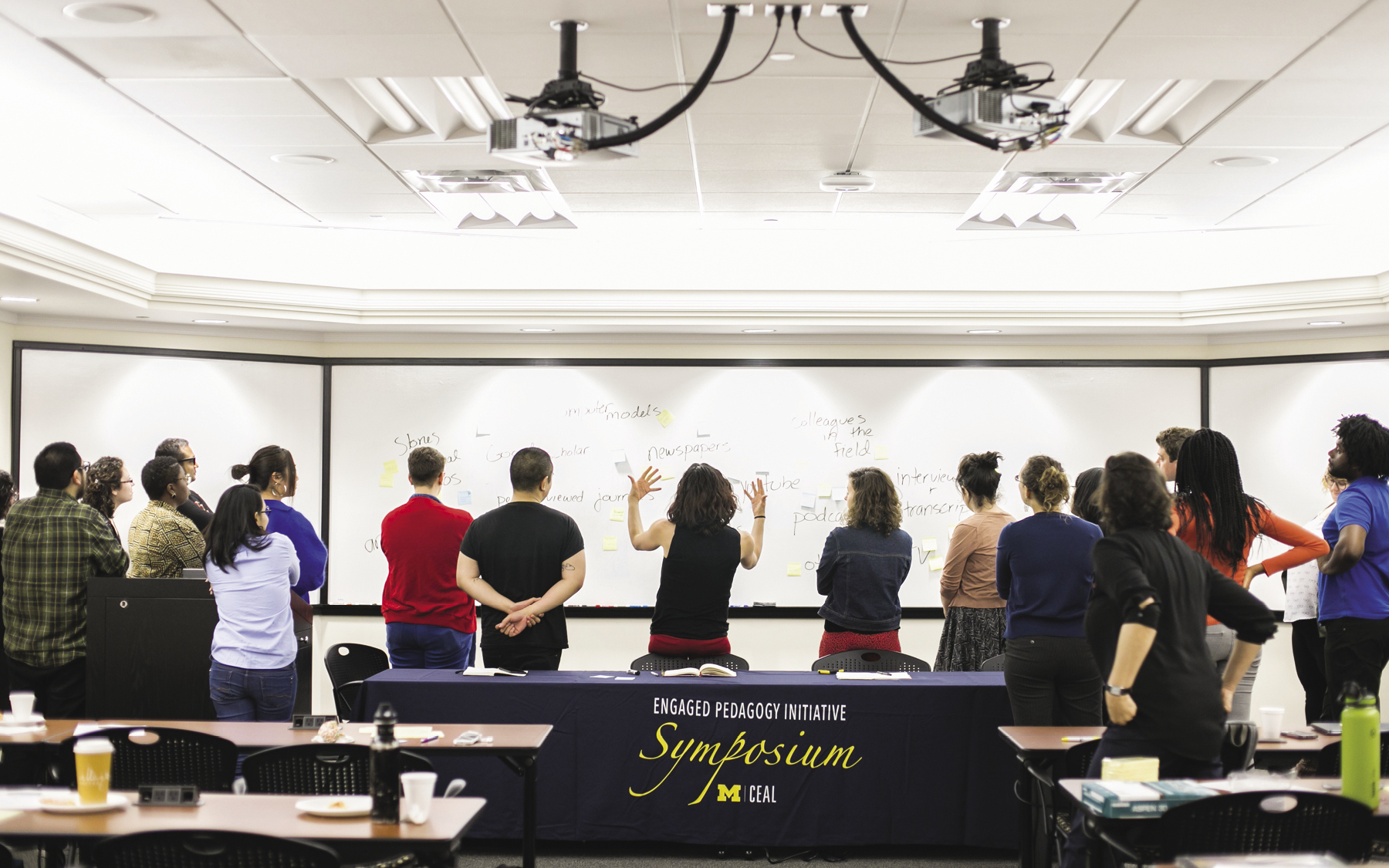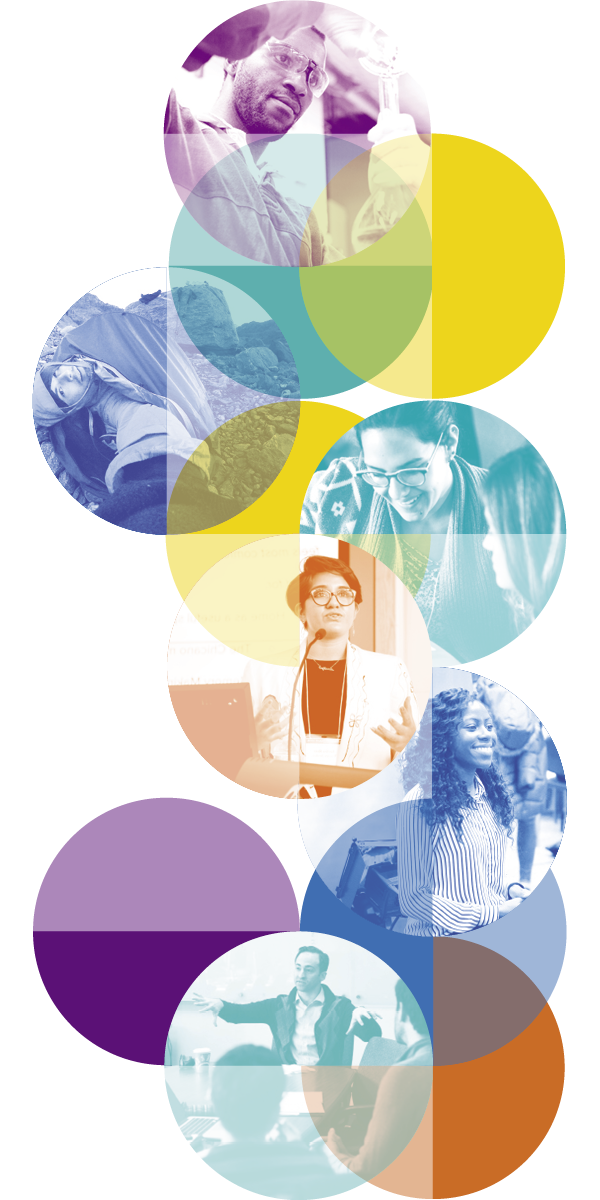Public Scholarship and Engagement Initiatives at Rackham: 20+ Years of Innovations in Publicly Engaged Learning

The Challenge
Our Challenge
Support graduate students and faculty in efforts to bring together their scholarship and commitment to community engagement; help scholars develop strategies to engage multiple publics beyond the academy.
Our Goal
A thriving community of graduate students and faculty committed to developing the skills necessary to bring their research and knowledge to challenging questions of social importance that benefit the public good.
Our Approach
Rackham provides professional development, mentorship, and resources for graduate students and faculty to learn how to apply their scholarly knowledge and develop skills in collaboration with diverse partners doing public-facing work on and off campus. The guiding principles of mutual benefit, co-creation of knowledge, and public good guide our work. Our commitment to bringing public scholarship to graduate education has its roots in the Arts of Citizenship Program, started in 1998, and the Rackham Program in Public Scholarship (RPPS). Since 2014, we have focused on a co-curricular set of programs designed to help students develop and articulate their skills and motivations toward public scholarship while building experience and networks for their future careers. More recently, we have expanded our offerings to include faculty who want to acquire skills and strategies for effective engagement with broader publics. Each program can be completed independently. Many choose to participate in more than one.
Institute for Social Change (ISC)
An interdisciplinary program held every May that introduces students to publicly engaged scholarship, pedagogy, and practices. Over the course of ISC, students work in small teams, led by a more senior peer mentor, to develop a project plan based on the needs set out by a community partner.
Public Scholarship Grants
These $8,000 grants support mutually beneficial projects between Rackham students and community partner organizations. Grant projects are collaboratively designed and result in products that advance new knowledge, enrich civic life, or address a pressing social issue.
Engaged Pedagogy Initiative (EPI)
An intensive, semester-long, community-based learning (CBL) workshop that guides graduate students through the process of incorporating community-based work into their teaching. Students design a syllabus for a course, which they can apply to teach in U-M’s Residential College. EPI is a partnership between the LSA office of Community-Engaged Academic Learning (CEAL) and the Rackham Program in Public Scholarship.
Mellon Public Engagement and the Humanities (MPEH)
A pilot program funded by the Mellon Foundation designed to create connections between humanities research and public audiences by convening a cohort of six faculty and six graduate students for co-learning during the spring term. Participants receive funding to advance their work on a current public-facing project. Through workshops, site visits, and trainings, participants learn about the wider public humanities ecosystem and apply tools of public communication to their work, explore why public scholarship matters to the humanities, and implement their new knowledge, insights, and shared understanding to specific projects that integrate research and engagement.
What We’ve Learned
Successes
- Students value the collaboration skills and new intellectual perspectives that they gain through interdisciplinary cohorts in our programs.
- Alumni report that these programs are critical during the job-search process and interviews, for both those working within and beyond academe.
- Long-term, sustainable partnerships on campus and off campus are critical to creating the most successful opportunities.
Challenges
- Visibility among students and departments: students often learn about programs too late in their graduate careers to participate and benefit.
- Fostering on-going connections and communities of practice between faculty and graduate students.
Next Steps
Develop more sustained, longer-term opportunities for students and faculty (i.e., public scholarship lab).
- Continue co-curricular model, but build in a means for students who participate in multiple RPPS programs to organize their long-term engagement in a meaningful way—such as a certificate or eligibility for additional award(s).
- Find new ways of bringing broader public scholarship community together for conversations and learning.
- Work with departments to communicate with students about our program offerings at multiple points (i.e., during orientation events/first-year seminars and upper-level research seminars or job-skills courses).
Location
Rackham Graduate School
Contact
- Joe Cialdella, Program Manager for Public Scholarship
- Catherine Sanok, Associate Dean for the Arts and Humanities
Visit
To learn more visit the Rackham Program in Public Scholarship page.

